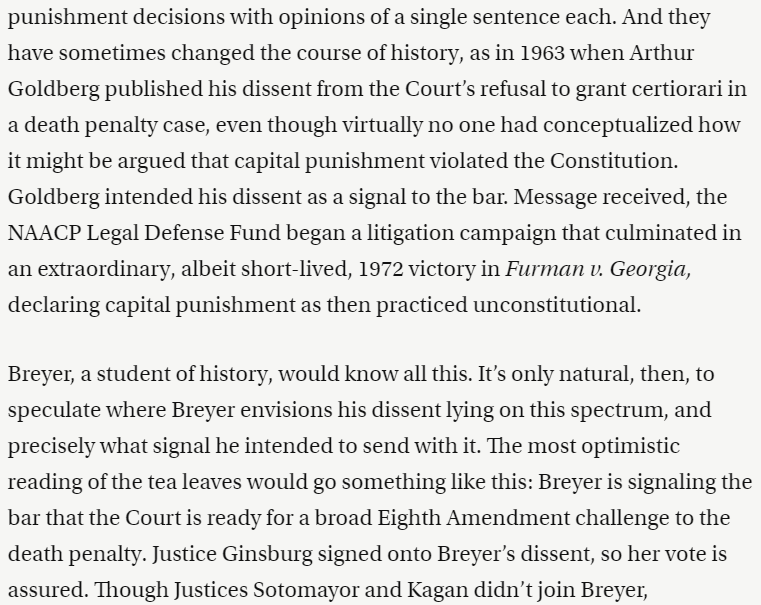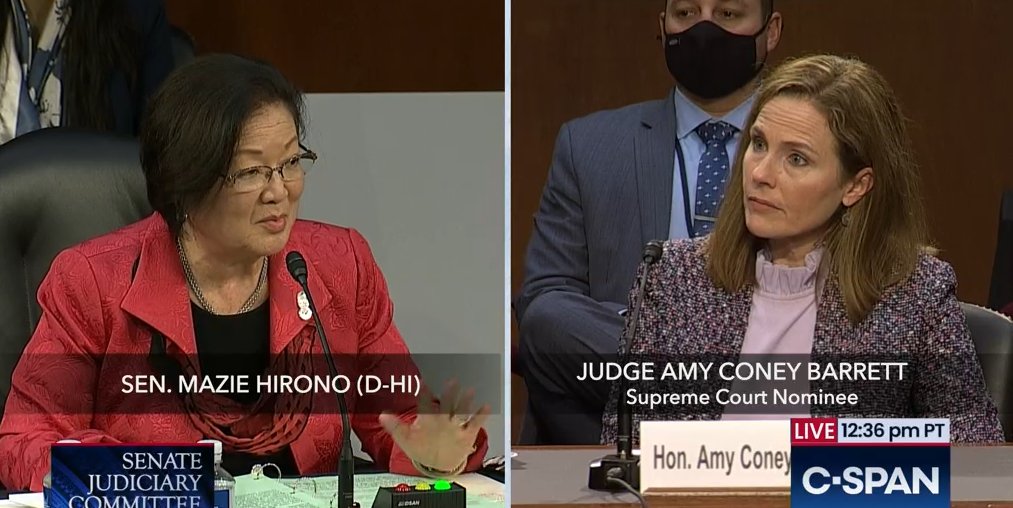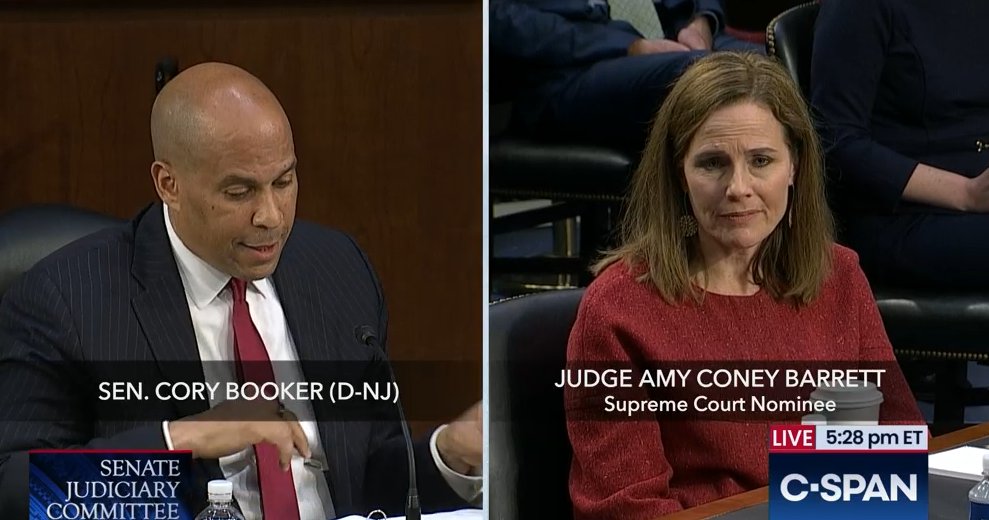
Hirono's voice rises questioningly as she has to pronounce the unfamiliar word "connection"
Hirono joins Whitehouse in pretending to be against Justices who signal interest in overturning a precedent, which of course is something they believe in when liberal Justices do it.
Recall that it is widely cheered when Justices such as Stephen Breyer use dissents to signal that they would invite challenges to the death penalty.
themarshallproject.org/2015/07/02/wha…
themarshallproject.org/2015/07/02/wha…

Hirono is now complaining that 5-4 decisions that included Roberts in the majority with the four liberals would be in jeopardy now - which is very off-message with Whitehouse's theory that there is a "Roberts Five" of conservatives conspiring to be bought off by conservatives.
Now, Hirono is saying that Justice Department preclearance of state election laws should be required because the Justice Department cannot be trusted to protect voting rights.
Hirono asks if there is a conflict in having three Justices who worked on Bush v Gore twenty years ago, involving different candidates, simply because it involves an election. This is bonkers. Recusal does not work anything like this.
Mazie Hirono should be on the Democrats' national ticket. She is really a perfect representative of their understanding of the law.
If Hirono was a Republican, the Jon Stewart progeny in late-night comedy would dedicate segments to her every single night.
• • •
Missing some Tweet in this thread? You can try to
force a refresh




